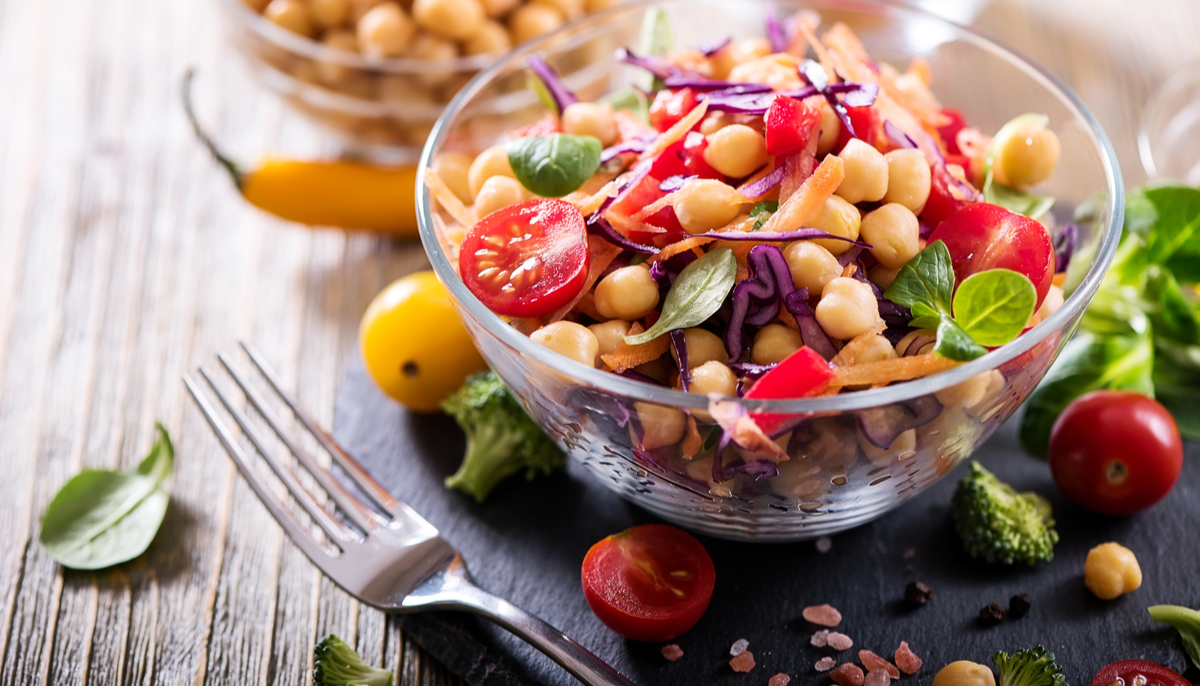
29 May Tips for Following a Vegetarian Diet
Eating vegetarian is a very healthy choice to make. Vegetarian diets can meet all the necessary nutrient requirements and be optimal for your body’s health and longevity.
Here are a few tips for following a vegetarian diet:
1. Consume protein
Cutting out animal products, like meat and cheese, from your diet will reduce and eliminate your consumption of saturated fats. Switching to a vegetarian diet will immediately cut most of the protein you consume out of your diet. Since protein is essential to the body, you will need to find vegetarian options. Luckily, vegetarian options exist. Foods like beans, peas, nuts, tofu, and lentils are great sources of protein in a vegetarian diet.
2. Consume whole grains
Grains lose a lot of fiber and nutrients when they are refined. Switching to whole grains, like brown rice and quinoa, will fulfill your iron and vitamin B requirements while following a vegetarian diet.
3. Avoid B12 deficiency
Vitamin B12 comes mostly from animal food products. B12 is necessary for the conversion of food into energy and assists in the functions of the brain. To fix this, you need to eat fortified foods like cereals or soy products. Another option when following a vegetarian diet would be to take B12 supplements.
4. Avoid calcium deficiency
A vegetarian diet lacks the animal products that supply the body with calcium. Calcium is essential for building strong bones and teeth. Lacto-vegetarians can get their calcium from dairy products like milk. Other vegetarians have to find other sources of calcium like dark-green leafy vegetables (collard, turnips mustard greens, bok choy), calcium-fortified soymilk, tofu made with calcium sulfate and calcium-fortified breakfast cereals.
5. Stay hydrated
Water is essential for adjusting to your new vegetarian diet, and it will prevent or curb any cravings you have. Always have a bottle of water on you. If water isn’t your speed, you could switch to flavored water, natural fruit juice, herbal drinks, or teas.
6. Lower your consumption of refined sugar
Sugar is broken down to provide energy for the body, but it needs to be kept to manageable levels. Sugar substitutes like stevia, Splenda, agave nectar, and brown rice syrup are available. Processed foods that contain ingredients like high fructose corn syrup are common and should also be avoided. Just because it is vegetarian does not mean it is healthy. Choose wisely.
7. Vary your menu
To cover a range of vitamins and minerals, you’ll need to eat fruits and vegetables of different kinds. Protein and fiber are found in beans. Leafy greens provide vitamins A, C, and K. A popular way of mixing and matching the fruits and vegetables you eat is by color (eat the rainbow). It also helps to try variations on non-vegetarian food like soy sausages, tofu burgers, falafel, etc.
8. Not all vegetarian foods are healthy
Processed vegetarian foods are very likely to contain palm oil and coconut oil, both of them high in saturated fats. Just because the food is sourced and created with vegetarian produce, it doesn’t make the meal healthy. The preferable choice would be whole foods that are vegetarian like nuts, dried fruit, carrots, hummus, etc.
9. Find vegetarian sources Omega-3 fatty acids
Even with all the healthy vegetarian options provided above, some nutrients are difficult to find. Omega-3 fatty acids DHA and EPA are necessary for the development of the eye and brain and the health of the heart. Fatty fish is the main source of Omega-3 fatty acids, but vegetarian diet options exist. Plants like flaxseed, walnuts, canola oil, and soy can provide the body with Omega-3 fatty acids. Other foods like soymilk now come with DHA fortifications. Supplements of DHA and EPA are also available.
10. Find vegetarian sources of Vitamin D
Vitamin D usually comes from salmon, sardines, milk, and yogurt, but other sources that aren’t animal or dairy-based exist as well. Fortified nondairy milk like soymilk and almond milk are great sources of Vitamin D. Mushrooms that have absorbed UV rays from the sun can also serve as Vitamin D sources. A supplement may be required to reach the necessary Vitamin D consumption targets.
11. Consume adequate amounts of iodine
Iodine is an important nutrient that should not be removed from one’s diet, even if you are rejecting meat products and switching to a vegetarian diet. Iodine supplements are available, but iodine can also be obtained from sea vegetables like seaweed, or it can be added to meals with iodized salt.
Conclusion
These are just a few necessary steps for following a vegetarian diet. Hopefully, this is just the beginning of a long and healthy lifestyle.
Stop in to Simply Eggless and enjoy a sweet treat. Just because you are following a vegetarian diet doesn’t mean you should avoid sweets. We are passionate about providing you with a wide range of eggless sweets and treats.
